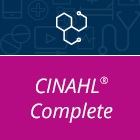Nursing & Health Sciences Research Journal
Abstract
Introduction: National guidelines do not support routine empiric vancomycin use in the initial management of febrile neutropenia (FN) and only recommend it in patients with specific clinical indications. This bi-phasic quality improvement project aimed to evaluate current vancomycin use in FN and improve compliance with a guideline-driven algorithm (GDA) to ensure appropriate prescribing and therapy duration in a community hospital.
Methods: Phase I was a retrospective review of charts of adults receiving empiric vancomycin therapy for FN at a community hospital. Phase II was a prospective review of charts of patients with FN, who received pharmacist-led interventions, to improve de-escalation of vancomycin as warranted.
Results: A total of 48 and 32 patients were included in phase I and phase II, respectively. While initiation of vancomycin therapy according to guideline-recommended clinical indications was comparable among phases, appropriate de-escalation of vancomycin increased from 23% in phase I to 78% in phase II. Overall compliance with the GDA increased from 15% in phase I to 38% in phase II. Average duration of therapy in phase I was 4.77 days versus 2.69 days in phase II and there were less patients who continued vancomycin beyond 48 hours in phase II. The pharmacy intervention rate was 56% (18 of 32) and the health-care practitioner acceptance rate was 100%.
Discussion: Pharmacist interventions had an impact in increasing compliance with national guideline recommendations and decreasing the duration of empiric vancomycin therapy in patients with FN.
Recommended Citation
Tadros, N., Dittmar, E., & Gopalani, R. B. (2021). Optimizing Empiric Vancomycin Use in Febrile Neutropenia Patients. Nursing & Health Sciences Research Journal, 4(1), 54-61. https://doi.org/10.55481/2578-3750.1101
Creative Commons License

This work is licensed under a Creative Commons Attribution-NonCommercial-No Derivative Works 4.0 International License.
Included in
Bacterial Infections and Mycoses Commons, Neoplasms Commons, Other Pharmacy and Pharmaceutical Sciences Commons


